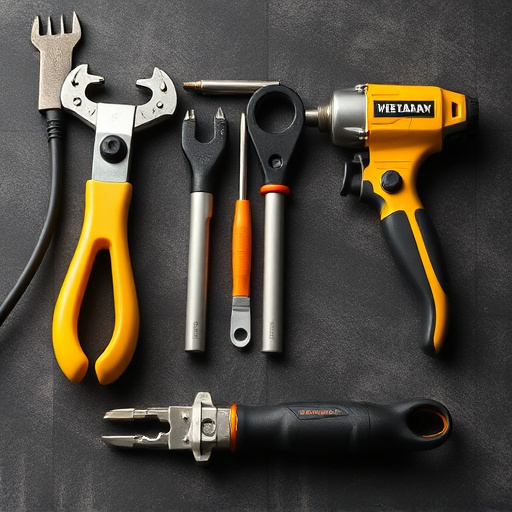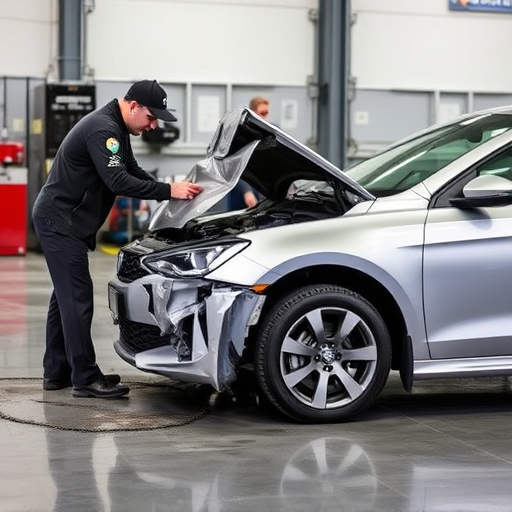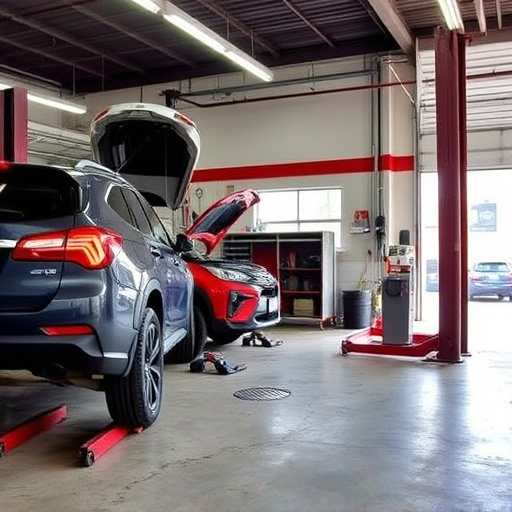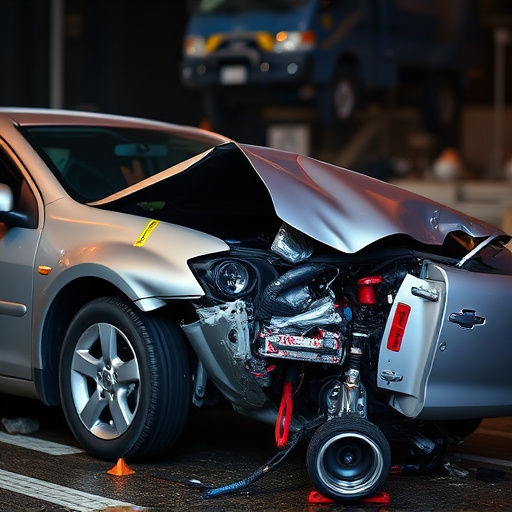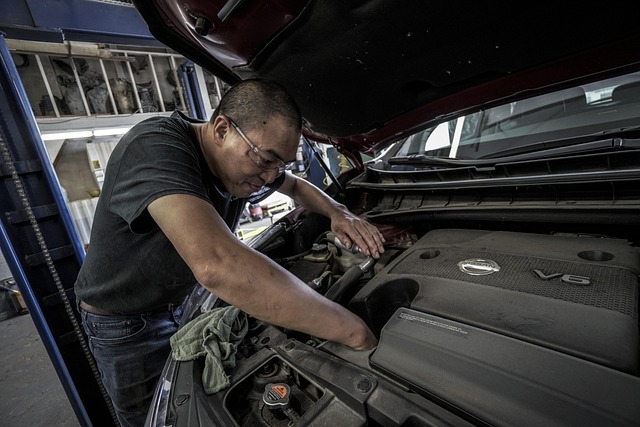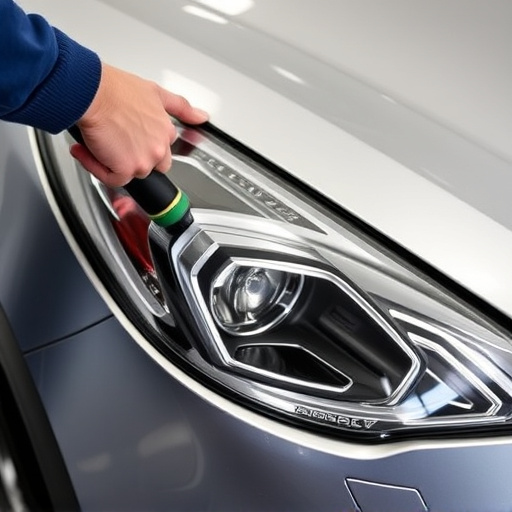Electronic measuring equipment revolutionizes auto repairs, offering precision and efficiency in damage assessment and restoration. From dent repair to comprehensive restoration, these tools ensure accurate adjustments and optimal vehicle performance by detecting subtle metal variations. With AI integration, they enable faster, more accurate assessments and predictive maintenance, transforming automotive service from reactive to preventive.
In today’s advanced automotive landscape, the role of electronic measuring equipment is indispensable for accurate and efficient auto repairs. This article delves into the intricate world of these tools, exploring their fundamental understanding and diverse applications. From diagnostic sensors to cutting-edge technology, we uncover the benefits that enhance service precision and speed. Additionally, we gaze into future trends shaping the industry, highlighting the continuous evolution of electronic measuring equipment in auto repair.
- Understanding Electronic Measuring Equipment in Auto Repair
- Benefits and Applications of Advanced Sensors
- Future Trends Shaping Auto Service Technology
Understanding Electronic Measuring Equipment in Auto Repair
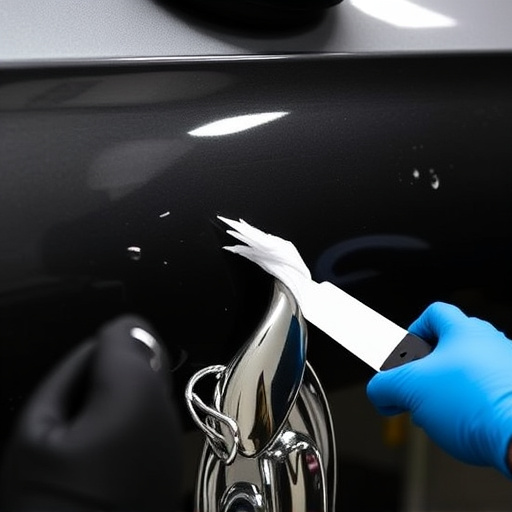
In the realm of auto repairs, electronic measuring equipment has emerged as an indispensable toolset, revolutionizing how mechanics diagnose and address issues in modern vehicles. These advanced gadgets go beyond traditional methods, offering precise and efficient solutions for a wide array of vehicle repair needs, from intricate car dent repair to comprehensive car restoration. By providing detailed measurements and data, they enable technicians to navigate complex systems with enhanced accuracy, ultimately improving the quality and speed of repairs.
Electronic measuring equipment plays a pivotal role in various aspects of vehicle repair. For instance, in aligning wheels during car dent repair, these tools ensure precise adjustments, minimizing the risk of uneven tire wear or structural damage. Moreover, they aid in calibrating sensors and systems during complex vehicle repair, ensuring optimal performance post-restoration. This level of precision not only saves time but also enhances the overall reliability of the repair work, making electronic measuring equipment a game-changer in the industry.
Benefits and Applications of Advanced Sensors
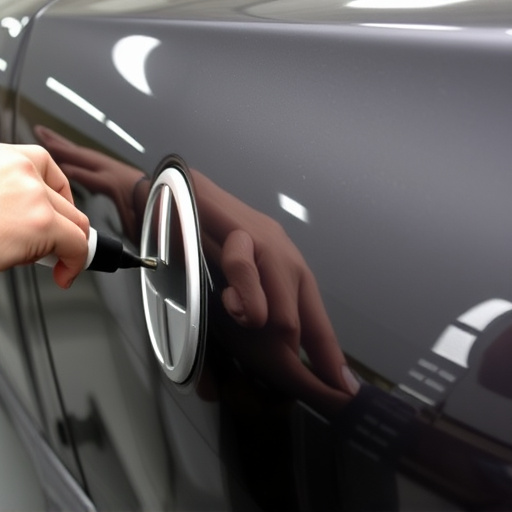
Advanced sensors have transformed the landscape of auto repairs, offering a multitude of benefits that enhance precision and efficiency. These electronic measuring equipment tools are invaluable in modern automotive collision repair settings. They enable technicians to accurately assess damage, especially in complex cases like dent removal, by providing detailed and precise data. With their aid, professionals can navigate intricate processes with greater confidence, ensuring minimal errors and optimal results.
The applications of these sensors are vast, from initial impact analysis to post-repair quality checks. In an auto collision center, for instance, they facilitate the identification of hidden damage that might go unnoticed during a visual inspection. This is particularly crucial in cases where metal has been bent or displaced, as sensors can detect even subtle variations, paving the way for more effective dent removal and restoration processes.
Future Trends Shaping Auto Service Technology
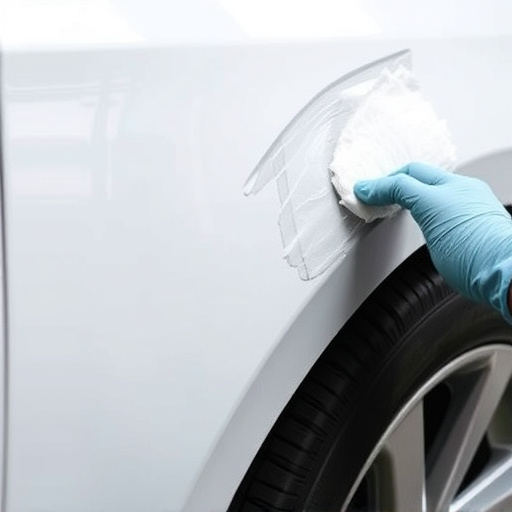
The future of auto service technology is being driven by several key trends, all centered around enhancing efficiency and precision in automotive collision repair and car damage restoration. Electronic measuring equipment is at the forefront of this revolution, playing a pivotal role in shaping the way mechanics and technicians approach their work. Advanced sensors and diagnostic tools are allowing for faster, more accurate assessments of vehicle damage, leading to reduced repair times and higher quality outcomes.
One notable trend is the integration of artificial intelligence (AI) and machine learning algorithms into auto service processes. These technologies enable automated data analysis and predictive maintenance, where electronic measuring equipment can identify potential issues before they become major problems. For instance, AI-driven systems can detect subtle patterns in sensor readings, indicating incipient mechanical failures in Mercedes Benz collision repair scenarios or other car damage repairs. This proactive approach promises to transform automotive service from a reactive to a preventive model.
Electronic measuring equipment plays a pivotal role in modern auto repairs, revolutionizing service with its advanced capabilities. From understanding vehicle systems through sensors to navigating future trends, these tools enhance precision and efficiency. By embracing the benefits of advanced electronics, auto repair shops can provide superior customer experiences and stay at the forefront of an evolving industry.

